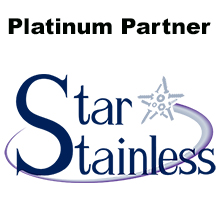COMPARING APPLES TO ORANGES—THE DIFFERENCE BETWEEN ERP AND ACCOUNTING SOFTWARE
From Distribution One
To many people, the terms “ERP” (Enterprise Resource Planning) and “Accounting Software” are interchangeable. This misconception, however, ends up being a detriment to companies when purchasing decisions are based on the comparison of two distinctly different product categories.
So what is the difference between ERP and accounting software? In short, accounting programs are merely a subset of the core ERP software capabilities and represent a fraction of the functionality provided by comprehensive ERP. This truth, however, is just the tip of the iceberg.
Accounting software
Predictably, accounting software deals with the financial aspect of operations by recording business transactions: AR/AP, journal entries, and general ledger utilized to produce basic financial reports like income statements and balance sheets. Due to this specified but limited focus, the accounting software market has experienced some instability with providers resorting to buyouts or ceasing operations altogether. Why?
Accounting software provides a good snapshot of a company’s financial health today but lacks the ability to anticipate tomorrow. Without data-driven forecasting, companies base business decisions primarily on SWAG (Scientific Wild Assumption Guessing) to predict supply and demand for products and services causing many to fall short of their profitability goals.
ERP software
Accounting functionality comprises just one subset of the overall solution. ERP’s main objective is to facilitate the day-to-day management of business operations by incorporating data from multiple aspects of the business into a seamless and comprehensive information system. ERP encompasses: Order Entry, Financials, CRM, Reporting, Purchasing, Inventory Control, Warehouse Management (automation/scanning), Serial/Lot Control, QC Tracking, Label Generation, Kitting/Assembly, Secondary Processing, and more along with supplementary functionality of E-commerce, API, EDI, and Mobile Apps.
By accurately processing and analyzing data through these company-wide functions, ERP software delivers forecasting integral to improving the timing of sales and inventory, detecting process deficiencies, and identifying strategic enhancements for growing productivity and competitive advantage.
What's Best for You?
Because businesses demand a more complete, comprehensive software solution, ERP continues to consume the accounting software market. Understanding the differences in software functionality is critical to your company’s near and long-term success. If you’re currently investigating software options for your enterprise, please contact me with questions on comparing apples to apples.
Steve Monks
Sales Executive


